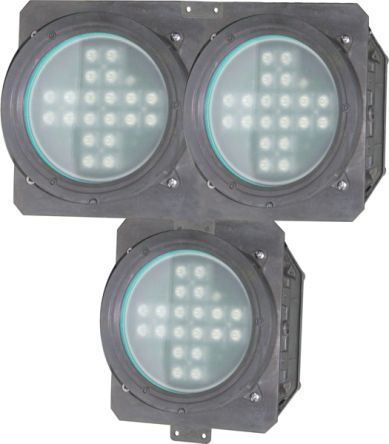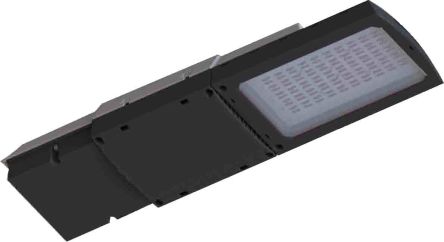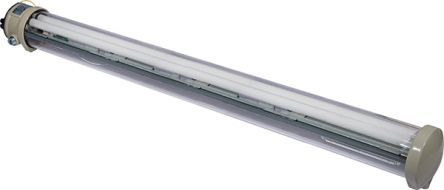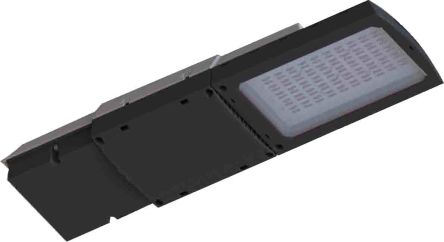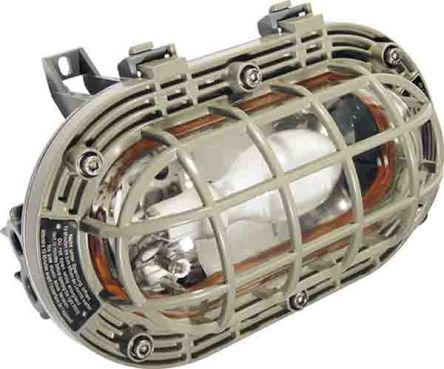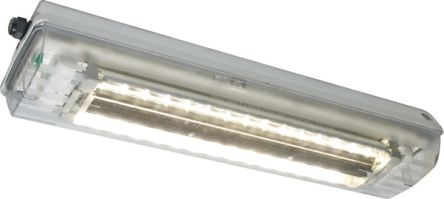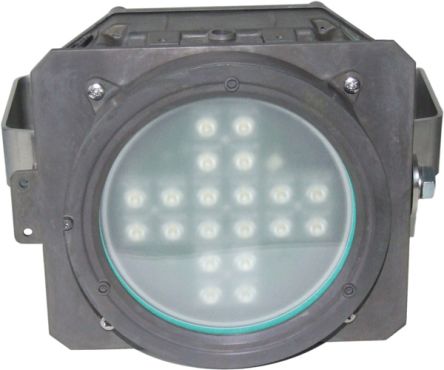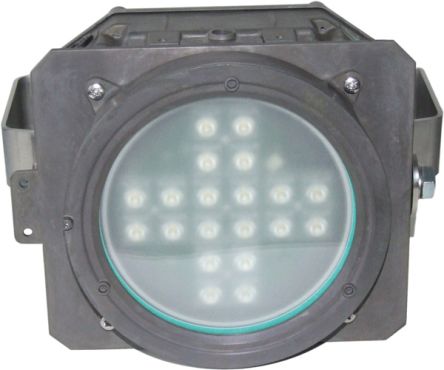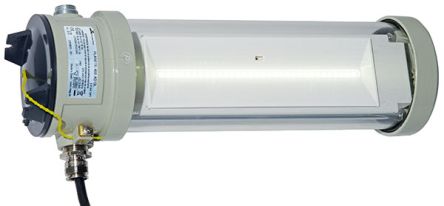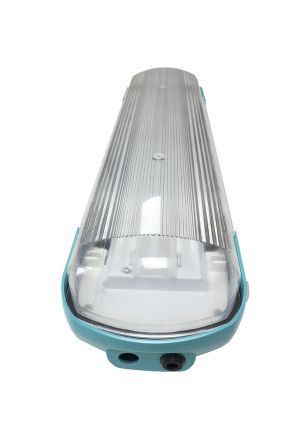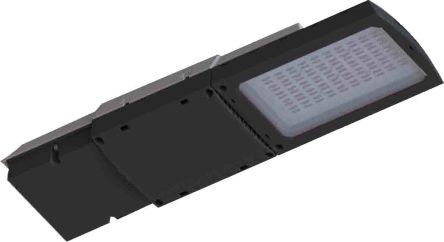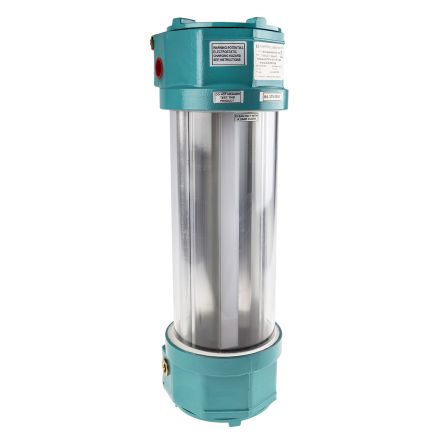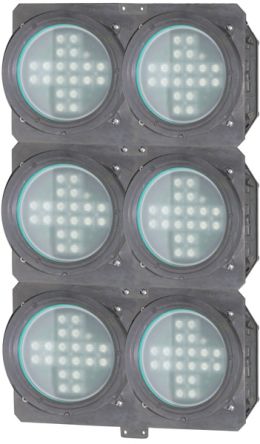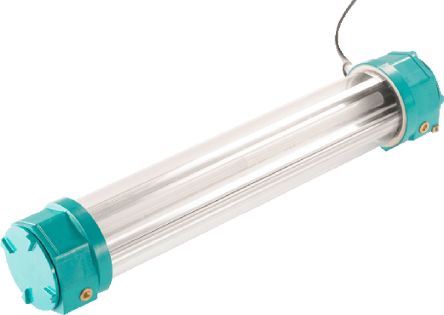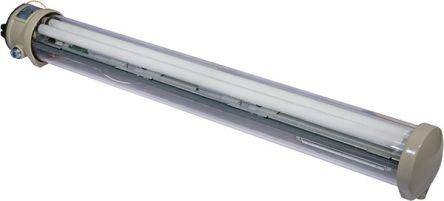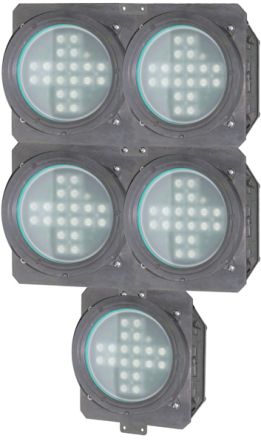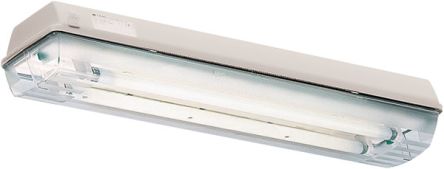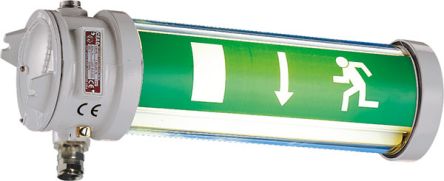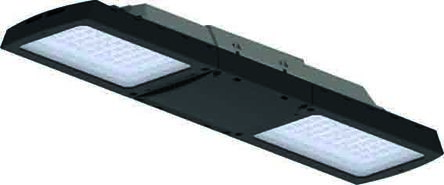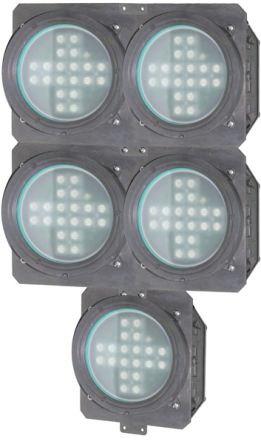- Automation & Control Gear
- Cables & Wires
- Enclosures & Server Racks
- Fuses & Circuit Breakers
- HVAC, Fans & Thermal Management
- Lighting
- Relays & Signal Conditioning
- Switches
- Batteries & Chargers
- Connectors
- Displays & Optoelectronics
- ESD Control, Cleanroom & PCB Prototyping
- Passive Components
- Power Supplies & Transformers
- Raspberry Pi, Arduino, ROCK, STEM Education & Development Tools
- Semiconductors
Hazardous Area Lights
Hazardous area lights are designed to withstand specific harsh conditions, like very hot temperatures, corrosive materials, in areas classified as hazardous. Our ATEX and IECEx certified hazardous lighting products including traditional fluorescent and LED lighting are safe in Zone 1, Zone 2 (gas) and Zone 21, Zone 22 (dust) hazardous areas found in various work places.
Hazardous area lighting, explosion protected lights, luminaires and safe LED lamps are essential for dangerous work areas including gas and vapour and combustible dust applications to protect and keep people safe.
How to choose the right hazardous area lighting
Hazardous areas, also known as potentially explosive areas, are defined by numbered 'zones'. They are spaces in which there is a risk of fire or explosion due to the presence of flammable or combustible substances. The smallest spark could trigger an explosion so lighting in these environments must be very carefully considered. Hazardous light fittings are built to cope in the different zones. As well as choosing the right light for your zone, other factors to consider include temperature classification, lamp type and voltage. Hazardous lights are also designed with different safety features included like flame proof, anti-corrosion or emergency.
How do hazardous area lights work?
Hazardous lights can switch on and off automatically. Most lighting fittings come with the lamps included, but others can be fitted with lighting ballast, for example. Many hazardous lights can be adjusted from a narrow to a wide beam and are made with a polycarbonate diffuser to resist harsh environments.
Floodlights use high intensity lamps to illuminate large hazardous areas. They are portable and most commonly available with LED (light emitting diode) lights as this technology is very efficient and wastes little energy in the form of heat. In hazardous environments excess heat could provide an ignition source so LED floodlights are preferred to fluorescent lamps or halogen lights.
Portable floodlights are not fixed into position which makes them useful for temporary situations and work usually with batteries.
What is hazardous zone classification?
Hazardous areas are defined by numbered zones based on the frequency of the occurrence and duration of an explosive gas atmosphere. Zone 0, Zone 1 or Zone 2 (for gas, vapour and mist atmospheres) or Zone 21 or Zone 22 for dust atmospheres.
